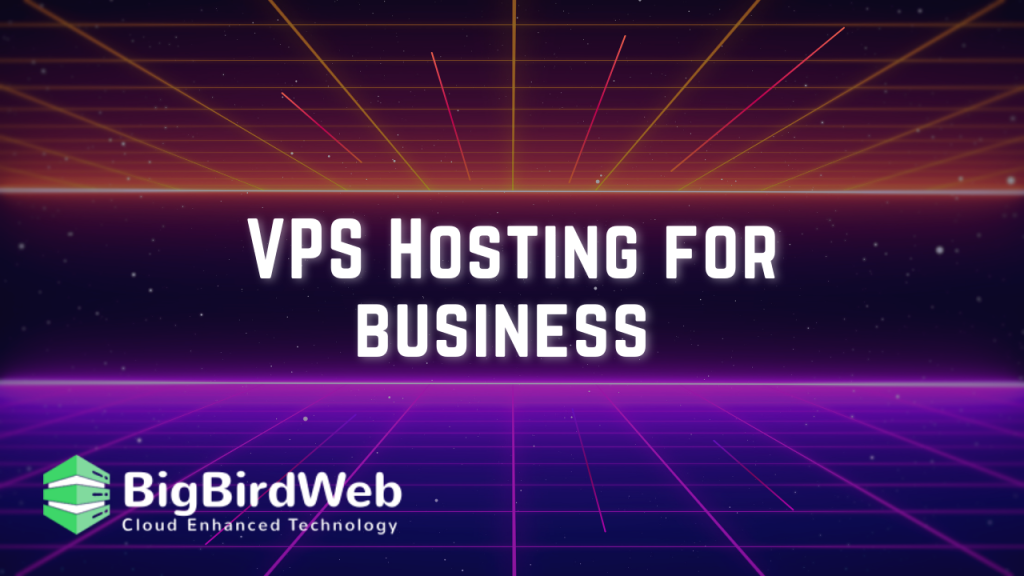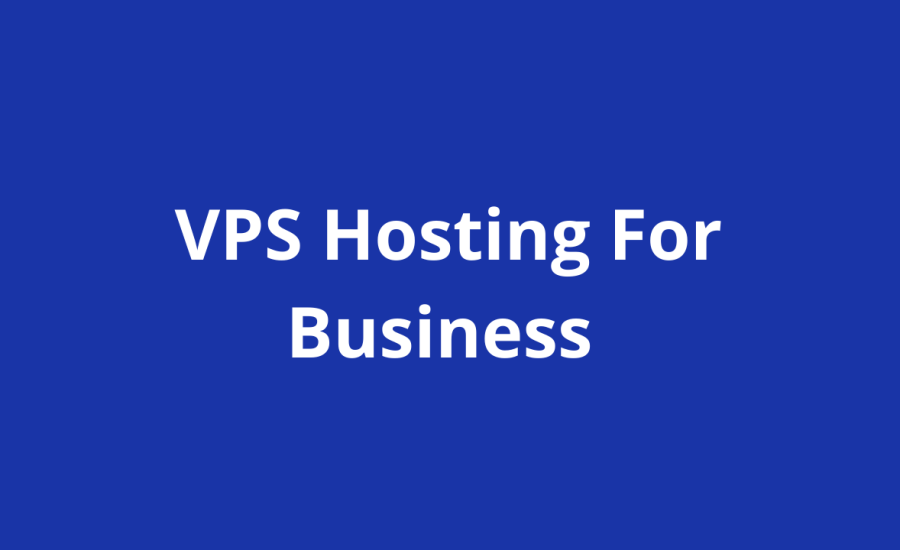VPS Hosting for business is a topic gaining traction as more companies recognize the need for robust, reliable, and scalable hosting solutions. In today’s digital age, a company’s online presence can significantly impact its success. As your business grows, so does the demand on your website, making it crucial to ensure that your hosting solution can keep up. In this blog, we’ll explore the signs that indicate when your business should upgrade to VPS hosting, the benefits it offers, and practical steps to make the transition smooth and effective.
Table of Contents
Understanding VPS Hosting

Before diving into when to upgrade, it’s important to understand what VPS hosting for business entails. VPS stands for Virtual Private Server. Unlike shared hosting, where multiple websites share the same server resources, VPS hosting allocates dedicated resources to your site within a virtualized environment. This means better performance, enhanced security, and greater control over your server settings.
Signs That It’s Time to Upgrade to VPS Hosting
1. Increased Traffic
One of the most obvious signs that your business needs VPS hosting is a significant increase in website traffic. Shared hosting can handle only a limited amount of traffic before it starts to slow down or crash. If your website is experiencing frequent traffic spikes, it’s time to consider VPS hosting for business to ensure smooth and uninterrupted performance.
2. Slow Website Performance
Website speed is crucial for user experience and SEO. If your site is loading slowly, it can lead to high bounce rates and a drop in search engine rankings. VPS hosting for business provides dedicated resources, which can significantly improve loading times and overall site performance.
3. Frequent Downtime
Frequent downtime can damage your business’s reputation and result in lost revenue. If your website is often down due to server overloads or other issues, it’s a clear sign that you need a more reliable hosting solution. VPS hosting for business offers greater stability and uptime compared to shared hosting.
4. Security Concerns
As your business grows, so do the risks associated with cyber threats. Shared hosting environments are more vulnerable to security breaches since multiple websites share the same server. VPS hosting for business provides a more secure environment with dedicated resources, reducing the risk of cross-contamination from other sites.
5. Need for Customization
Shared hosting limits your ability to customize server settings and install specific software. If your business requires specialized applications or custom configurations, VPS hosting for business is the way to go. It offers root access, allowing you to tailor the server environment to your specific needs.
6. Running Resource-Intensive Applications
If your website or business applications are resource-intensive, such as e-commerce platforms, CRM systems, or large databases, shared hosting may not provide the necessary resources. VPS hosting for business ensures that your applications run smoothly without competing for resources with other websites.
7. Expansion Plans
If your business plans to expand its online presence, either by adding more websites or launching new projects, VPS hosting provides the scalability needed to accommodate growth. You can easily upgrade your resources as your business evolves, ensuring that your hosting solution keeps pace with your ambitions.
Benefits of Upgrading to VPS Hosting
Improved Performance
VPS hosting for business offers significantly better performance compared to shared hosting. With dedicated resources, your website can handle higher traffic volumes and deliver faster loading times, enhancing user experience and SEO.
Enhanced Security
Security is paramount for any business. VPS hosting for business provides a more secure environment with advanced security features like custom firewalls, regular security updates, and isolated resources. This reduces the risk of data breaches and cyber attacks.
Greater Control and Flexibility
With VPS hosting for business, you have root access to your server, allowing for extensive customization. You can install and configure any software or application that suits your business needs, providing the flexibility to create a tailored hosting environment.
Scalability
As your business grows, so do your hosting needs. VPS hosting for business offers seamless scalability, allowing you to easily upgrade your resources without experiencing downtime. This flexibility ensures that your hosting solution can grow with your business.
Cost-Effective Solution
While VPS hosting for business may have a higher initial cost than shared hosting, it offers excellent value for money in the long run. The improved performance, security, and control reduce the risks of downtime and data breaches, which can be costly. Furthermore, the ability to scale resources as needed means you only pay for what you use. You can also opt for free web hosting.
Practical Steps for Upgrading to VPS Hosting
1. Assess Your Needs
Before upgrading to VPS hosting for business, assess your current and future hosting needs. Consider factors such as website traffic, resource requirements, and the specific features you need to support your business operations.
2. Choose the Right VPS Plan
Select a VPS plan that aligns with your business needs. Look for a plan that offers sufficient CPU, RAM, and storage, and ensure that your hosting provider allows for easy scalability. It’s also important to consider the level of customer support and uptime guarantees provided by the host.
3. Backup Your Data
Before migrating to VPS hosting for business, ensure that you have a complete backup of your website and any associated data. This will protect you from data loss during the transition process.
4. Test the New Environment
Once you have your VPS hosting set up, test the new environment thoroughly. Check that all applications and configurations are working correctly and that your website performs well under the new setup. This testing phase is crucial to ensure a smooth transition.
5. Migrate Your Website
After testing, you can proceed with migrating your website to the new VPS hosting for business environment. Follow the instructions provided by your hosting provider to transfer your files and databases. It’s also a good idea to seek assistance from your provider’s support team if needed.
6. Monitor and Optimize
After the migration, monitor your website’s performance and make any necessary optimizations. Regularly check your server logs, update your software, and implement security measures to maintain optimal performance and security.
Conclusion
Upgrading to VPS hosting for business is a strategic decision that can significantly enhance your online presence. By providing improved performance, enhanced security, greater control, and scalability, VPS hosting ensures that your business can handle increased traffic, run resource-intensive applications, and grow without limitations. If you’re experiencing slow performance, frequent downtime, security concerns, or the need for more customization, it’s time to consider making the switch to VPS hosting.
FAQs
1. What is VPS hosting?
VPS hosting for business is a type of hosting where a physical server is divided into multiple virtual servers, each with dedicated resources. It offers better performance, control, and security compared to shared hosting.
2. How does VPS hosting improve website performance?
VPS hosting for business provides dedicated resources such as CPU, RAM, and storage, ensuring consistent performance even during high traffic periods. This results in faster loading times and a better user experience.
3. Is VPS hosting suitable for small businesses?
Yes, VPS hosting for business is suitable for small businesses, especially those expecting growth. Its scalability allows businesses to start with minimal resources and upgrade as needed, making it a cost-effective solution.
4. What security measures should I implement on a VPS?
For VPS hosting for business, implement strong security measures such as custom firewalls, regular software updates, strong passwords, and security plugins that offer features like malware scanning and brute force protection.
5. How do I choose the right VPS plan for my business?
Consider your current and future resource needs when selecting a VPS hosting for business plan. Look for a plan that offers sufficient CPU, RAM, and storage, and ensure your hosting provider allows for easy scalability.
Bonus Content: Tips for Optimizing Your Business Website on VPS Hosting
- Enable Caching: Use caching plugins to speed up your website by storing static copies of your pages.
- Optimize Images: Compress images to reduce load times without compromising quality.
- Minimize Plugins: Use only essential plugins to avoid unnecessary bloat and improve site performance.
- Regular Updates: Keep your website software, themes, and plugins up to date to ensure optimal performance and security.
- Monitor Performance: Regularly monitor your site’s performance and make necessary adjustments to maintain fast loading times.
By following these tips and leveraging the benefits of VPS hosting for business, you can ensure your site runs smoothly, providing a better experience for your visitors and improving your overall online presence.
